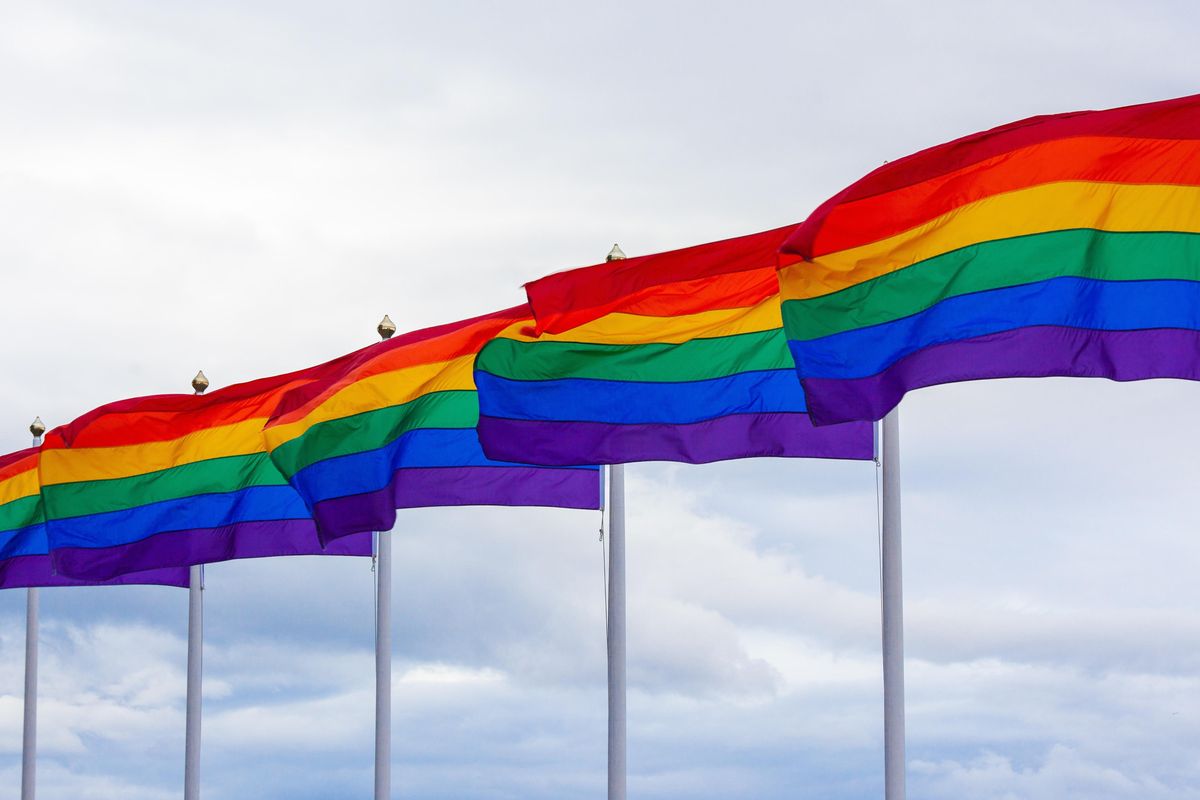Father of LGBTQ kids has a perfect response to homophobic new neighbor who tried to shame him
It was a colorful response, to say the least.
Dad responds to rude neighbor with rainbow flags.
Sometimes, when we encounter unsavory behavior from others, a response is warranted. But the real art is responding in a way that’s clear, strong, and yet still peaceful. For an example of this, look no further than Xander’s dad, who was on the receiving end of hate from his neighbor. Rather than spewing back the same amount of vitriol, his colorful comeback had courage, wit and just the right amount of flair.
As Xander tells us in the video, the retort came after the neighbor told his dad that having two gay kids (Xander’s sister Claire is a lesbian) meant he “failed as a parent.” “So dad took a moment then replied with this…” the onscreen text reads. Next thing you know, Xander’s dad can be seen filling his backyard with huge (like, parade-level huge) rainbow pride flags. A dozen of them at least.
The video ends with the words: “No, saying things like that does.”
@fitxander Some AWESOME shade from my dad 😂🌈 #gay #dad @claire_training
In another video, we learn that the not-so-friendly neighborhood watch told his dad that he wasn’t allowed to fly “gay flags” anymore.
@fitxander Follow me on IG for more 🌈 #lgbtq #gay #pride
But rather than accept defeat—or resort to cruelty—he simply looked at the rules, only to discover that his house was actually outside the map by 2 meters (6.5 feet). So up the pride flags went! And even more this time!
Flag responses seem to run in the family. In another video, Xander explains that his neighbor (where have all the friendly ones gone?) said he couldn’t sell his house because of the small window-sized trans flag hung near the roof. So Xander got an even bigger one that covered the entire back side.
Are gay people more likely to have gay siblings than straight people?
In another video, Xander introduced his sister, who is a lesbian, begging the question, is it more likely for gay people to have a gay sibling than a straight person? Research says yes. Gay women and men are more likely to have gay siblings than straight women and straight men. Somewhere between 7 to 16% of gay people also have a gay sibling.
@fitxander We really did say this. What were we thinking! #gay #lesbian #gaysiblings
Pride Flags have long been a nonviolent way to stand up for the LGBTQ community. And yet, they still manage to whip up plenty of heated controversy, particularly at schools. The original eight colors all had a specific meaning, and only one color (pink) denoted sexuality. Meaning that the pride flag was and is just as nuanced and dynamic as the people it represents.
The flag has taken on many different forms over the years as it evolves to speak for more marginalized communities, but it remains a peaceful and artistic form of protest. One that always seems to get the message across.
This article originally appeared three years ago.

